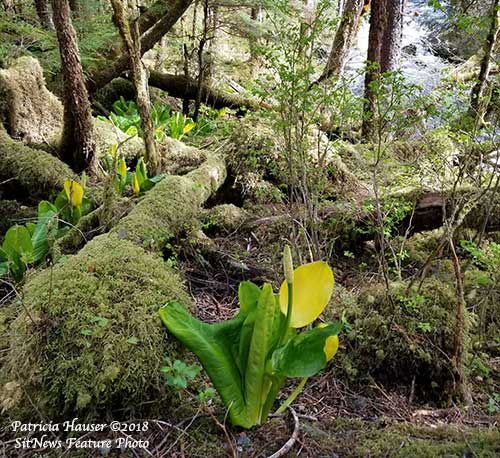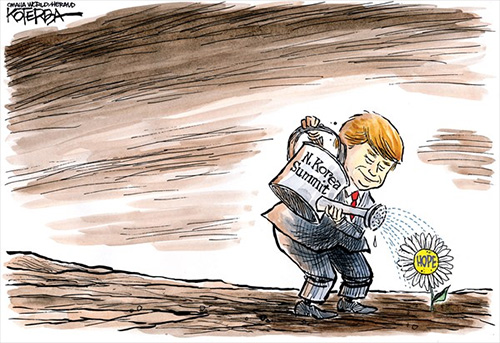



Weekly Specials
Online Shopping; Pickup or Delivery |
|















 Contact Contact 
 Webmail
Letters Webmail
Letters
 News Tips News Tips
 Copyright Info Copyright Info
 Archives Archives
Quick News
Search
 Alaska Alaska
 Ketchikan Ketchikan
 SE Alaska SE Alaska
Columns
- Articles
 Dave Kiffer Dave Kiffer
 Money Matters Money Matters
Historical
Ketchikan
 June Allen June Allen
 Dave
Kiffer Dave
Kiffer
 Louise
B. Harrington Louise
B. Harrington
Sports
 Ketchikan Links Ketchikan Links
Public Records
 FAA Accident Reports FAA Accident Reports
 NTSB
Accident Reports NTSB
Accident Reports
 Court Calendar Court Calendar
 Recent Filings & Case Dispositions Recent Filings & Case Dispositions
 Court Records Search Court Records Search
 Sex Offender Reg. Sex Offender Reg.
 Public Notices Public Notices
 AST Daily Dispatch AST Daily Dispatch
 KTN
Police Reports KTN
Police Reports
 Juneau Police Reports Juneau Police Reports
Weather,
Webcams
 Today's
Forecast Today's
Forecast
 KTN
Weather Data KTN
Weather Data
 AK
Weather Map AK
Weather Map
 AK Weathercams AK Weathercams
 AK Earthquakes AK Earthquakes

|
|

Friday
May 11, 2018

|
Lysichiton americanus
The Skunk Cabbage Legend: “In ancient days there were no salmon. The people had nothing to eat except roots and leaves. Finally, after many years, the spring salmon came for the first time.
As they passed up the river someone stood upon the shore and shouted:“Here come our relatives whose bodies are full of eggs. If it had not been for me all the people would have starved.”
“Who speaks for us?” said the salmon.
“Your uncle, the skunk cabbage,” was the reply.
Then the salmon went ashore to see him, and as a reward for having fed the people, the skunk cabbage was given an elk-skin blanket and a war club, and was set in the rich, soft soil near the river. There he stands to this day, wrapped in his elk-skin blanket (spathe) and holding aloft his war club (spadix).”
Front Page Feature Photo By PATRICIA HAUSER ©2018
|
|
Fish Factor: Alaska's 2018 Salmon Season Gets Underway By LAINE WELCH - Alaska’s 2018 salmon season officially gets underway this week with the first 12-hour opener on May 17 for sockeyes and kings returning to the Copper River.
The catch there this year calls for 19,000 kings and 942,000 sockeye salmon targeted by a fleet of more than 500 drift gillnetters.
Here’s a primer of how fishery managers project the rest of Alaska’s salmon season may play out:
Statewide, the 2018 salmon harvest is projected at 149 million fish, down 34 percent from the 2017 take of 226 million salmon.
The shortfall this season stems from lower projections for hard to predict pink salmon. The Alaska Department of Fish and Game isforecasting a total humpie harvest of just over 70 million, down by half from last year.
For sockeyes, a statewide catch of about 52 million is down by 1.8 million fish from 2017, which was the 5th largest red salmon catch since 1970. By far, most of the sockeyes will come from Bristol Bay’s nine river systems where a harvest of 37.5 million is projected.
For chum salmon, this year’s Alaska catch is pegged at 21 million, down by nearly four million from last year’s huge 25 million haul, the largest catch in in 47 years.
The 2018 coho catch should be nearly 6 million, an increase of 600,000 silvers from last season.
For Chinook salmon, a catch of 99,000 is projected in areas outside of Southeast Alaska, where the numbers are determined by treaty with Canada.
The Southeast harvest will be just 130,000 fish for all users, down 80,000 from last year. For commercial trollers the take is 95,700 taken from a few select areas.
The salmon market outlook is good heading into the 2018 season. “Demand for Alaska salmon is fairly strong and competing farmed salmon prices are high. And despite catching over a billion pounds of salmon last year, there are no big inventory concerns,” said longtime fisheries economist Andy Wink of Wink Research and Consulting . “
Alaska sockeye could face some competition in its expanding fresh market sales from fish at the Fraser River in British Columbia.
“Their runs have popped every four years and this is an up year for that system. That would bring a significant volume of fish to market this year,” Wink said, adding “I’m not too concerned because demand for Alaska sockeye is robust and farmed prices are providing a lot of support.”
The average sockeye price paid to Alaska salmon fishermen in 2017 was $1.13 per pound.
The price for Chinook salmon was $5.86; coho salmon at $1.19, pinks at $.32 and chum salmon averaged $.66 a pound at the docks.
The total value of the 2017 salmon fishery was nearly $680 million for Alaska’s fishermen, - a nearly 67 percent increase over 2016. - More...
Friday PM - May 11, 2018
Alaska: Alaska’s Commercial Fisheries Bill On Way to Governor for Signing into Law; HB 56 Increases the Amount Alaskans Can Borrow to Support Commercial Fishing Businesses – Wednesday, the Alaska Legislature passed a bill sponsored by Representative Dan Ortiz (I-Ketchikan) that will help Alaskans involved in the state's vital commercial fishing industry. House Bill 56 passed the Alaska State Senate Wednesday after passing the Alaska House of Representatives last year.
“Commercial fishing is hard-work and creating a successful commercial fishing business is not an easy task. The State of Alaska plays a key role in helping many commercial fishing businesses get the capital they need to start or expand because all too often the risky nature of the industry makes it difficult to get private loans,” said Rep. Ortiz. - More...
Friday PM - May 11, 2018
Alaska: Murkowski Announces $10.9 Million in Secure Rural Schools Payments to Alaska – U.S. Sen. Lisa Murkowski, R-Alaska, announced this week that communities across Alaska will soon receive a total of $10,972,512 to fund schools and local budget priorities. The payments are being provided through the Secure Rural Schools (SRS) program, which Murkowski successfully reauthorized and funded in the recent omnibus appropriations bill.
“I recognize that as timber production declines, local communities in Alaska and across the nation are forced to rely on the Secure Rural Schools program to pay for essential services such as schools and roads,” Murkowski said. “That’s why I worked hard to ensure the SRS program would receive funding this fiscal year, and why I continue to seek reforms to provide communities with greater access to forested lands to develop their economies and ultimately eliminate the need for this program.” - More...
Friday PM - May 11, 2018 |
|
Alaska: Senate Approves Program to Pay Billion Dollar Tax Credit Debt; Goes To Governor to be Signed into Law - The Alaska Senate today approved a program to resolve nearly $1 billion owed to small oil and gas companies and reinvigorate work in the state’s oil patch.
Governor Walker requested the bill as part of his Alaska Economic Recovery Plan. It allows Alaska to issue bonds to pay the final debts carried over from the outdated oil tax credit system. Last year, state legislators voted to end the program that offered tax credits to small companies exploring and producing from new oil fields. HB 331 will clear Alaska’s balance sheet by bonding to make the remaining payments at no additional cost to the state.
Rather than waiting years for their payments, small oil and gas companies will be paid their credits now at a discounted rate. Alaska will use the savings to pay the interest on the bonds that will be used to close the debts immediately. HB 331 means promises made under the old oil tax credit system will be fulfilled fairly, efficiently, and at no extra cost to Alaskans. Alaska’s three largest oil and gas companies were not eligible to receive the credits. - More...
Friday PM - May 11, 2018
Alaska: Bill to Improve Lives of Alaska Foster Youth and Families Sent to Governor to be Signed into Law – The Alaska Legislature passed comprehensive legislation sponsored by Representative Les Gara (D-Anchorage) to improve Alaska’s foster care system. House Bill 151 establishes new training and workload standards for caseworkers in the Office of Children’s Services. Lower caseload levels are widely recognized to lead to better health and outcomes for children and families. HB 151 has broad support from children’s advocacy groups and adopts major, comprehensive national best practice standards. The bill passed the Alaska State Senate Wednesday by a unanimous 18-0 vote. The bill was co-sponsored by 18 members of the Senate.
“OCS caseworkers ensure Alaska’s most vulnerable children are safe from maltreatment. It is difficult for these caseworkers to respond to families' needs in a timely manner when they are juggling up to 40 cases at once,” said Alaska Department of Health and Social Services Commissioner Valerie Davidson. “Thanks to the leadership of Representative Gara, this bill will ensure our OCS caseworkers have the training and support they need to keep Alaska’s children safe.”
“The experience we want is not 50 percent of youth ending up homeless at some point after foster care, or 26 percent experiencing jail. These are among the things this bill will change,” said Rep. Gara. - More...
Friday PM - May 11, 2018
|
|
Southeast Alaska: Rob Sanderson Jr. Seated as Chairman of the Southeast Alaska Indigenous Transboundary Commission - Central Council of Tlingit and Haida Indian Tribes of Alaska (Tlingit & Haida) announced today that 4th Vice President Rob Sanderson Jr. has been seated as Chairman of the Southeast Alaska Indigenous Transboundary Commission (SEITC).
SEITC is a consortium of 15 federally recognized tribes in Southeast Alaska whose mission is to create a unified voice for Indigenous peoples who are facing impacts from industrialization occurring in our region. Established in March of 2014 as the United Tribal Transboundary Mining Work Group, SEITC seeks to protect ancestral tribal lands and waters in the Southeast Alaska, Bristol Bay, British Columbia and Yukon Territory regions . SEITC derives its authority from tribal governments in the following communities: Craig, Douglas, Hydaburg, Juneau, Kake, Kasaan, Ketchikan, Klawock, Klukwan, Metlakatla, Petersburg, Saxman, Sitka, Wrangell and Yakutat.
“The Tribe congratulates VP Sanderson on his appointment to Chairman of SEITC,” said President Richard (Chalyee Éesh) Peterson. “We are grateful for his continued work protecting our sacred ancestral lands and environment. Rob has been a long-time advocate of environmental issues, raising awareness of the transboundary mining threats that exist in Southeast Alaska. With his experience, I believe we can accomplish the Tribe’s long-term commitment to support the sustained wellbeing of our land and culture and succeed in creating a vibrant, healthy future for our people.” - More...
Friday PM - May 11, 2018
Supreme Court: Supreme Court case tests weight of old Native American treaties in 21st century By MONTE MILLS - On April 18, the United States Supreme Court heard oral arguments in Washington v. United States, which pits the state of Washington against the United States and 21 Indian tribes. The main question in the case is narrow – whether the state must quickly replace hundreds of culverts that allow the flow of water under roads but also block salmon migration. Yet the underlying issue is far broader.
At stake in the case is the Supreme Court’s ongoing role as the nation’s highest arbiter of justice. Despite immense changes, that role remains grounded in a 229-year-old Constitution premised on the supremacy of federal treaties and individual rights.
In previous cases, the Supreme Court upheld the tribes’ rights to fish salmon, spelled out by various treaties entered in the 1850s. But, having insulated those rights from destruction previously, the court must now decide their meaning for the 21st century and beyond. That decision may say more about what justice means in our modern legal system than it does about tribes, salmon or culverts.
‘As justice and reason demand’
In the mid-1800s, the United States’ zeal for expansion and growth resulted in the removal of Indian people and the acquisition of their territory, often through the use of treaties.
Isaac Stevens, the first governor of the territory of Washington, negotiated treaties on behalf of the United States with tribes across the Pacific Northwest and did so using similar treaty forms and language. In the heart of salmon country, Stevens recognized the importance of fishing to the tribes and, to persuade them to cede vast swaths of land, he emphasized language in the treaties that would preserve the tribal “right of taking fish, at all usual and accustomed grounds and stations…in common with all citizens of the Territory.” In fact, while negotiating one treaty, Stevens promised the tribes that the “paper secures your fish.” - More...
Friday PM - May 11, 2018
|
DAVE KIFFER: Lies, Damned Lies, and Wall Street Statistics - So, a friend from Down South asked me recently, how I felt to live in the "poorest town" in Alaska?
Considering the fact that, by any reasonable stretch of the imagination, Ketchikan is NOT the poorest town in Alaska, this question comes up surprisingly frequently. It seems that there is a website that offers any random clickers a list of the "poorest towns in each state."
And it seems like every couple of weeks, the USA Today website spits out this bit of stale news and everyone sops it up like it is a new story.
Apparently the numbers - which of course never lie - have determined that Ketchikan is the poorest town in Alaska.
The median household income in Ketchikan is $53, 937. The median in the state is $74,444 and, voila, Ketchikan is the "poorest" town in the state. - More...
Friday PM - May 11, 2018
 |
TOM PURCELL: For Mother's Day, Embracing Our Lost Sense of Humor - "You've lost your sense of humor, and you need to get it back!"
Such was the admonishment my mother gave me many times over the years when one of life's temporary failures gave me license to indulge in self-loathing.
"Life is full of difficulty," she'd say, "and you can either find the humor in life or let its continuous challenges make you miserable and self-absorbed!"
In my mother's world, nothing is worse than self-absorption - nothing is worse being trapped in the narrowness of your own point of view.
During each of her "corrective sessions," she'd have me laughing out loud before long.
You see, laughing loudly at life's foibles was the greatest gift she ever gave my five sisters and me.
Most nights after dinner, when I was young, my sisters and I sat around the table, relating stories about we'd done that day or week and laugh deep into the evening. - More...
Friday PM - May 11, 2018
|

Political Cartoon: A Hopeful Sign
BY Jeff Koterba ©2018, Omaha World Herald, NE
Distributed to paid subscribers for publication by Cagle Cartoons, Inc.
 |
HB 312 strips away your rights By Andree McLeod - Lawmakers have again willfully and intentionally stripped away constitutionally protected rights of due process. House Bill 312 is, in part, an Act relating to arrest without a warrant for assault in the fourth degree at a health care facility. It impacts everyone, especially people who live with brain illness and cognitive impairments, such as autism, Post-Traumatic Stress Disorder, dementia, Alzheimer's disease, Traumatic Brain Injury, and mental illness, among other brain illness.
In their attempt to deal with an increased crime rate, lawmakers found the courage to strip away the rights of individuals who are at their most vulnerable, when they re brought to medical facilities experiencing confusion and severe bouts of psychosis, mania, disorientation, and other symptoms of brain and cognitive impairments unrelated to substance abuse. - More...
Friday PM - May 11, 2018
 |
U.S. Coast Guard Earth Day Community Cleanup By Jerry Cegelske - Once again members of the U.S. Coast Guard participated in the cleanup of areas of the Borough where trash and litter have been intentionally dumped over the last year. This is the 13th year they have taken time to clean up various areas of the community, including some of the most challenging areas to work in or to remove the trash from. Some of the main areas worked on Friday the 27th were Whipple Creek, Revilla Road and Troller’s Creek under the new bridge on Knudson Cove Road. It was nice to see their enthusiasm as they attacked the litter and trash dumped at those areas. The fact that the weather cooperated with sunshine and ideal temperatures with no rain may have had something to do with it.
Troller’s Creek was a challenge as it is about 50 feet from the bridge to the creek bottom. The members working there brought up two televisions, tires, bicycles, a garage door, an old computer, a transmission and other car parts, a trash can they used to get trash from the creek bed to the bridge, boat trailer jack, lumber, pipe, along with a lot of other trash. One treasure was a steel Coke can that you had to use a pointed bottle opener to open. It is expected that this is one area that will be worked on next year as they were not able to remove everything that was in the creek before it got too late in the day. - More...
Monday PM - May 07, 2018
 |
Restitution for Victims of Violent Crime By Fred Dyson - The Alaska Legislature just united 60 to 0 to strike a great blow for restitution for the victims of violent crime by passing HB 216. This bill allows the "Criminal Fund" which comes from the Permanent Fund Dividends of incarcerated felons to be used as "bridging monies" to reimburse victims when the perpetrator is unable to do so. It does NOT release the perpetrator from his/her responsibility to pay the victim or reimburse the "Criminal Fund". HB 216 also provides dollars for child support and much needed treatment for both victims and perpetrators. - More...
Monday PM - May 07, 2018
 |
THE OWNED MAN By David G Hanger
- While there is little to no doubt that U.S. Senator Dan Sullivan has not read any portion of this new tax law he hypes so loudly, it is less clear whether he is just crass and stupid, and expects you to be the same, or whether he is just being intentionally deceitful, for any advantage this new tax law might provide the individual citizens and taxpayers of this state is purely accidental; and in many instances instead of a substantial tax decrease you will be getting a substantial tax increase, in some individual cases as much as 40%+. Mr. Sullivan is the bought and sold property of special interests and the possessor of the moniker, Senator Conoco-Phillips, a well-earned appendage. In 2018 his buddies will pay 7% of the total revenue collected by the U.S. Government, and 85% is collected from you in the form of individual income tax and payroll tax charges: $218 billion from corporations (7%), $1.7 trillion in individual income taxes (50%), $1.2 trillion in payroll taxes (35%). As a special treat to individual Alaska taxpayers Senator Conoco-Phillips signed off on outlawing all travel deductions and union dues, etc. for anyone who gets paid on a W2. No one, of course, travels much for work in Alaska, so hardly anyone (beyond the thousands affected) will see their individual tax liabilities spike by 10% to 40%. - More...
Monday PM - May 07, 2018
 |
Regulation of education stifles progress By Dan Weber - Have we lost sight of the purpose of America’s education system? It is supposed to be focused on providing the nation’s next generations with the knowledge, moral values and skillsets they need to be responsible and productive citizens. However, federal over-regulation has created an intrusive atmosphere in our schools that stifles progress.
Education consultant and activist, John Danielson, points out that schooling is a local matter. Danielson has served as senior advisor to one US Secretary of Education, Lamar Alexander, and Chief of Staff to another, Rod Paige. - More...
Monday PM - May 07, 2018
 |
An Argument on How Traditional Prevention is Ending in Our Society By Liberty-Anne Johnson - In February, it was reported online by KRBD that Ketchikan Gateway Borough Assembly needed to appropriate the 15% of tobacco tax revenue as previously agreed through ballot measure. Despite being a victim of brain and eye hacking via remote to be professionally polite and disclose current circumstance, I decided to write a letter to the Ketchikan Borough Assembly about the appropriation given my former prevention position in that community. Writing the letter from a more personable level rather than professional prevention analytical perspective which seemingly resulted according to the KRBD article immediately after that meeting with report of absent in-depth discussion from the borough assembly with additional request of agency proposals by them with additional testimony by the communications manager from the medical center at that specific meeting. My suggestion was to appropriate the funds for small grants for proposed projects by individuals, small independent groups, the art community, and local businesses to conduct related projects with possibility partnering with other businesses. Further ideas for tobacco tax uses through these grants included promoting or developing social media content, or other research advancements related to tobacco prevention or cessation rather than seeking typical agency outcomes to give the community some buy-in. - More...
Monday PM - May 07, 2018
 Webmail your letter or Webmail your letter or
 Email Your Letter To: editor@sitnews.us Email Your Letter To: editor@sitnews.us
|
Articles &
photographs that appear in SitNews may be protected by copyright
and may not be reprinted or redistributed without written permission
from and payment of required fees to the proper sources.
E-mail your news &
photos to editor@sitnews.us
Photographers choosing to submit photographs for publication to SitNews are in doing so, granting their permission for publication and for archiving. SitNews does not sell photographs. All requests for purchasing a photograph will be emailed to the photographer.
|
|

















The Local Paper is
available online.
Click here for this week's printed edition (PDF)

|
|

![]() Contact
Contact ![]()
![]() Webmail
Letters
Webmail
Letters![]()
![]() News Tips
News Tips![]()
![]() Copyright Info
Copyright Info![]() Archives
Archives![]() Alaska
Alaska![]() Ketchikan
Ketchikan![]() SE Alaska
SE Alaska![]() Dave Kiffer
Dave Kiffer![]() Money Matters
Money Matters ![]() June Allen
June Allen![]() Dave
Kiffer
Dave
Kiffer![]() Louise
B. Harrington
Louise
B. Harrington ![]() Ketchikan Links
Ketchikan Links![]() FAA Accident Reports
FAA Accident Reports ![]() NTSB
Accident Reports
NTSB
Accident Reports![]() Court Calendar
Court Calendar![]() Recent Filings & Case Dispositions
Recent Filings & Case Dispositions ![]() Court Records Search
Court Records Search![]() Sex Offender Reg.
Sex Offender Reg.![]() Public Notices
Public Notices![]() AST Daily Dispatch
AST Daily Dispatch![]() KTN
Police Reports
KTN
Police Reports![]() Juneau Police Reports
Juneau Police Reports ![]() Today's
Forecast
Today's
Forecast![]() KTN
Weather Data
KTN
Weather Data![]() AK
Weather Map
AK
Weather Map![]() AK Weathercams
AK Weathercams![]() AK Earthquakes
AK Earthquakes









































